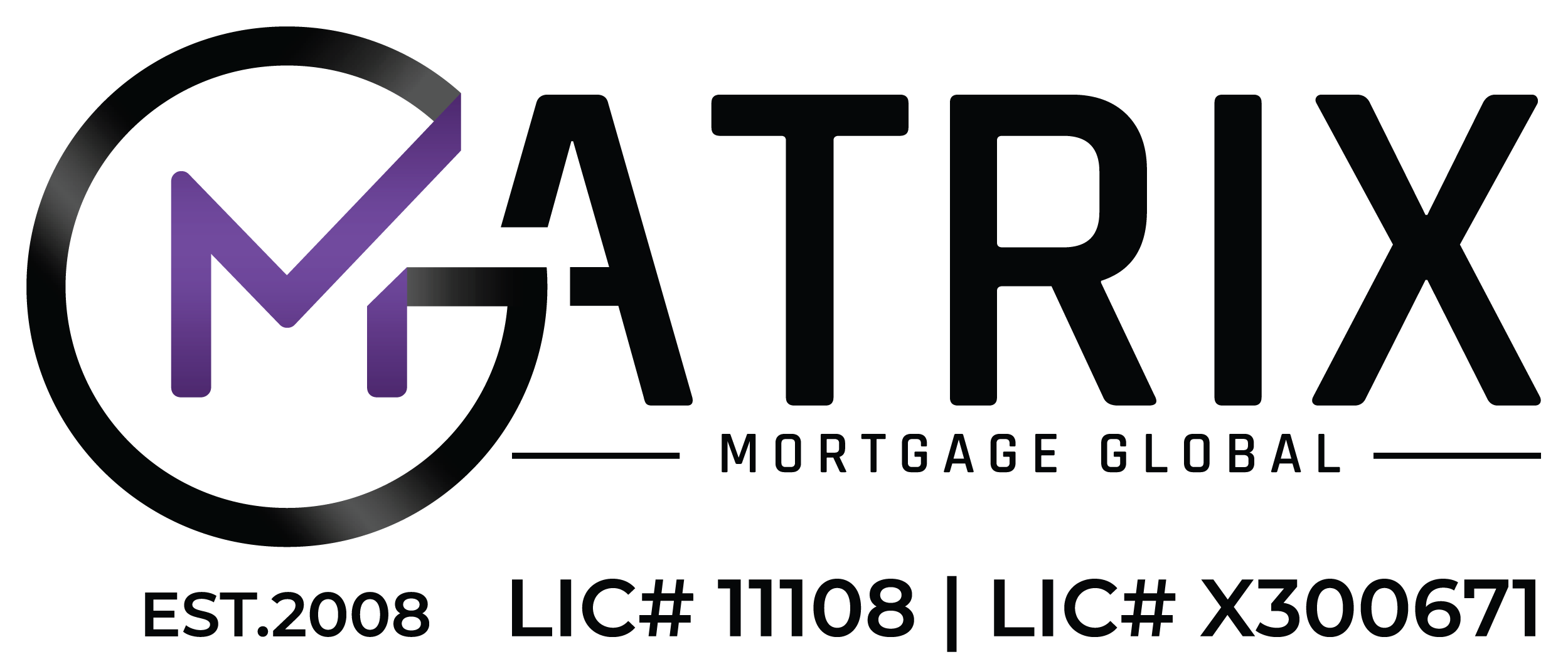Compare the Best Current Mortgage Rates in Canada for free
Compare mortgage rates and save up to $11,944 over 5 years* with CheapestMortgageRates.ca.

Advice on mortgages for first-time
homebuyers
Purchasing your first home may cause stress. It’s probably going to be your biggest investment ever. Here are some useful mortgage advice to assist reduce your stress.
Get a pre-approval
Before you make your purchase, visit your lender to lock in the best mortgage rates and amortization term available in Canada. You’ll be ready for the financing procedure to go swiftly and easily once you’ve found the house of your dreams.
Don’t stress about the 20% down payment:
You might be eligible for mortgage insurance or CMHC, which would enable you to make a smaller down payment while giving your lender assurance that their loan is secured.
Comparison shop
The greatest source to compare mortgage rates from Canada’s leading lenders is CheapestMortgageRates. You will be connected with a lender or broker that will gladly assist you on your trip and receive prompt quotations.
Pay down debt
Pay off previous credit card bills to free up funds before taking out one of your biggest loans ever, if not the largest one of your life. Additionally, you’ll contribute to improving your credit score, which will be a good place to start when corresponding with lenders.
Review your budget
Understanding your financial capacity can assist you in obtaining the greatest mortgage rates available in Canada. When you chat with lenders, determine what you can afford by estimating the costs associated with owning a property.
What is a mortgage?
A mortgage is a loan taken on to buy a home, land, or other real estate. The borrower or purchaser of the home agrees to pay a lender (often a bank) the principal amount plus interest over a set period of time. The property serves as collateral to secure the loan, should the borrower default.
Fixed vs Variable Mortgage Rate and Open vs Closed Mortgage Term
A fixed rate mortgage or loan, also called a term loan, is where the interest rate stays fixed for the entire length of one term (which you and your lender agree upon).
A variable rate mortgage is where the interest rate may change periodically during the term of the mortgage, but the monthly payment of the borrower will remain the same. As a result, payments towards the principal of your mortgage can increase or decrease depending on the interest rate.
The choice of fixed or variable depends on your tolerance for interest rate fluctuations. In a low interest rate environment, a variable rate could save you a lot of money, however if you like knowing your payments will stay the same, regardless of interest rate fluctuations, fixed is ideal.
Within mortgages, consumers can opt for closed or open mortgages. Closed mortgages penalize you for paying off all or part of your mortgage early whereas an open mortgage is flexible and allows you to increase your regular payments or pay a lump sum each year
Common mortgage amortization periods
The most common amortization period is 25 years. As far as the big banks are concerned, the amortization period was historically 30 years for a borrower who made a minimum 20% down payment on their home.
But a stubborn inflation environment and continued high interest rates has changed the thinking on amortization periods. The Bank of Canada notes that homeowners are beginning to stretch their budgets by looking for mortgages with amortization periods beyond 25 years. In 2019, the share of buyers seeking longer time frames was at 34% and in 2022 the number rose from 41% to 46% – nearing half of all buyers. In some cases, they are now going as high as 40 years.
The Bank says: “A longer amortization period reduces the size of monthly payments, helping lower debt-servicing costs, but increases the period of household vulnerability because equity is built more slowly.”
What is CMHC (Canada Mortgage and Housing Corporation) insurance?
Mortgage insurance or CMHC insurance is required for homeowners who purchase a home with a down payment of less than 20%. This insurance is meant to protect the lender, not you. The benefit is that it allows you to buy a home even if you have less than 20% of the purchase price saved for a down payment.
What is CMHC (Canada Mortgage and Housing Corporation) insurance?
If you decide on purchasing a home with less than 20% of the down payment saved, you will need CMHC insurance.
What is a mortgage?
In the past year and a half, Canadians have seen interest rates go from historic lows to highs not seen in decades. This has had the effect of changing how buyers can qualify for mortgages and the stress tests placed on them to assess risk.
The federal government introduced the stress test back in 2016 for mortgage holders who were making a down payment of between 5% and 19% and were required to purchase mortgage default insurance. In 2018, the Office of the Superintendent of Financial Institutions – the government agency that regulates federally incorporated lenders – changed the stress test to include buyers who make a down payment of at least 20 per cent and are uninsured.
The most recent changes introduced a new mortgage qualifying rate for all uninsured and insured mortgage applications submitted on or after June 1, 2021. Buyers must prove they can handle payments based on either the benchmark rate of 5.25% or the rate offered by your lender plus 2% – whichever is higher
- A good credit score: You will generally need a 680 to 720 FICO score or above. Your co-borrowers, if any, will also need good credit. Like anything else, there are exceptions to this. But the more exceptions you require, the lower your chances of getting the best rate.
- Clean credit: Lenders want to see few or no derogatory items on your credit report. One missed payment in three years might be okay; five missed payments are not, especially if they went to collections
- Provable income: A lender will usually ask you to prove your full income with tax documents and/or employer pay stubs. You need a two-year history of any bonus income, commissions or part-time income.
- Reasonable debt ratios: If your monthly housing and payment obligations are more than 44% of your gross monthly income, you’ll seldom get the best rates. Moreover, your monthly housing costs (mortgage payment, property taxes, heat and half your condo fees) cannot be more than 39% of your gross monthly income. That 39% limit requires a 680+ credit score, by the way. Otherwise, it’s 35%. Remember this as well. To qualify for the lowest mortgage rates, you’ll have to pass the federal government’s mortgage stress test. All that means is that the lender will calculate your debt ratios using an inflated interest rate. If the lender is offering you a 3.25% rate, for example, it might stress test you to see if you can afford payments at a 5.25% rate.
- Sufficient employment tenure: If you just started your job, you may not qualify with some lenders. Many lenders prefer to see at least a one-year job history if you’re salaried. But again, there are exceptions for those who aren’t salaried. If you’re self-employed, you’ll likely have to reflect more information about your income and there may be an upper limit to how much you can borrow. See our guide to getting a mortgage as a self-employed person in Canada, here.
What affects mortgage rates in Canada?
In the past year and a half, Canadians have seen interest rates go from historic lows to highs not seen in decades. This has had the effect of changing how buyers can qualify for mortgages and the stress tests placed on them to assess risk.
The federal government introduced the stress test back in 2016 for mortgage holders who were making a down payment of between 5% and 19% and were required to purchase mortgage default insurance. In 2018, the Office of the Superintendent of Financial Institutions – the government agency that regulates federally incorporated lenders – changed the stress test to include buyers who make a down payment of at least 20 per cent and are uninsured.
The most recent changes introduced a new mortgage qualifying rate for all uninsured and insured mortgage applications submitted on or after June 1, 2021. Buyers must prove they can handle payments based on either the benchmark rate of 5.25% or the rate offered by your lender plus 2% – whichever is higher
- External factors – So much of the economy is intertwined with one element influencing others. Mortgages fall into this pattern and can be influenced by many factors. For example, as inflation has risen around the world, and here at home, central banks have raised interest rates to slow the market. As the Bank of Canada has raised rates to curb inflation, the major banks have followed suit and raised mortgage rates for consumers. This has had the effect of slowing demand and sales, leading to house prices falling as inventory grows.
- Bank of Canada rate: Beginning in March of 2022, the Bank of Canada began raising its key overnight lending rate for which banks pay to loan money to each other. This has a direct effect on borrowing costs and home mortgage rates. In July 2023, the BoC raised overnight rates again to 5%, with the Bank Rate at 5¼% and the deposit rate at 5%. The Bank said, that inflation dropped from a high of 8.1% to 3.4% in May. But a continued tight labour market, and high food prices, has influenced it to continue its policy of quantitative tightening.
- Bond market: Due to expectations of an economic downturn, bond yields, which lead fixed mortgage rates, have been falling. The thinking is that inflation may be nearing its peak, but the recession risk is real. Because the BoC has continued its strategy of quantitative tightening, interest rates remain relatively high and may do so throughout the year. A significant decrease in energy and food inflation may change the Bank’s thinking but so far that hasn’t happened.
- Supply and demand on real estate: Market demand can also affect mortgage rates. As demand heats up, prices for homes go up but competition from lenders could be a bonus for home buyers looking to buy homes, with banks offering lower rates to win business.
- Factors that determine your own mortgage rate: Yes, inflation, supply and demand, and the Bank of Canada will influence mortgage rates and trends but there are factors that affect you personally. For example:
Credit score– This will show lenders your trustworthiness and how likely you are to pay down debt.
Down payment – The more you save and have for a down payment, the lower your rate may be. Lenders want to reduce risk and so if you have more to put down towards your house, the more you may get a lower rate.
Type of rate – If you choose a fixed rate mortgage your payment and rate will stay the same throughout your full term. A variable rate mortgage will fluctuate based on the prime lending rate set by the lender.
Mortgage loan term – Choosing fixed rate mortgages can allow you to lock into lower rates if, for example, you choose a 5-year term versus a shorter 1-year term.
Personal Income – Mortgage lenders will want to know you have the ability to pay your mortgage and your debt to income ratio (percentage that evaluates your debt compared to your gross income) can sustain payments.
Appraisal Value – Appraisals can change the value of the home you are purchasing and ultimately your mortgage rate. If you’ve saved 20% for a downpayment and then the appraiser values the home less than you thought, your downpayment becomes less than 20%, which could affect the risk factor and mortgage rate your lender would be willing to provide.
Factors that affect your mortgage rate in Canada
Mortgage rates are not the same for everyone. Different circumstances and monetary influences can change the mortgage rate of each person applying for it. Here are some of the factors that can affect your mortgage rate in Canada:
1. Credit score: Credit score is an indicator of risk and trustworthiness to lenders. The better your score, the more likely you are to pay down your debt on time. A lower score may mean you have had debt problems in the past and could lead to a higher (or no) mortgage from lenders.
2. Down payment: Putting as high a down payment as possible can reduce your mortgage rate. The rate is calculated based on the borrowing amount. Borrowing less means your rate and/or amortization would be reduced. Lenders want to eliminate risk, and when you invest more of your money into your home, you are naturally reducing their risk.
3. Type of mortgage: The type of mortgage you choose could alter the rate you pay. Generally, people opt for one of the following mortgages:
Fixed rate mortgage: With this option, your payment and mortgage rate stay the same, or remain fixed, throughout your full term. Fixed rates tend to be well above the prime rate.
Variable rate mortgage: If you go for this option, your mortgage rate will fluctuate based on the prime lending rate set by the lender.
Prime rates tend to fluctuate, and variable-rate loans typically fluctuate with them. Variable rates tend to be lower than fixed rates, but there’s always the risk of them fluctuating throughout the mortgage term. Variable rates work best when the prime rate is on the downward trajectory.
4. Bank of Canada’s decisions: As has been seen recently with higher inflation rates, the Bank of Canada will take measures to fight inflation by raising its rate. This, in turn, impacts the lenders, as they will base their rates on the Bank of Canada’s key rates. As of 2023, rates are higher than they have been in decades.
5. Inflation: As inflation either rises or falls, the Bank of Canada will adjust its rates accordingly.
6. Mortgage loan term: Choosing a longer-term fixed-rate mortgage of five or more years allows you to lock yourself into a good rate. You’ll have the security that your rates won’t go up and you’ll know your payments for each month. However, if you choose a one-year fixed-rate mortgage, you have the flexibility to take advantage of lower rates, but you get less security if interest rates rise that year.
7. Location: Larger markets with a high number of lenders may be more competitive, which makes it easier to find better mortgage rates. A smaller community or province with fewer lenders may not have the supply and demand that contributes to competitive pricing.
Do you have questions about what we do?
We assist Canadians in making wiser financial and insurance decisions.
On our website, residents of Canada can freely compare rates on over 50 leading financial product suppliers. Thanks to modern technology, you may view the prices that several organizations are prepared to give you simultaneously. This covers credit cards, mortgages, cars and home insurance, and more. We are always expanding our product line to provide you with the greatest possible experience.
The greatest method to be sure you’re receiving the best deal is to compare prices. You could request a price directly from each lender or insurance provider, but it would take a lot of time. By comparing the market on your behalf, Cheapestmortgagerates.ca handles the grunt work.
Cheapestmortgagerates.ca is not a broker. We are a comparison service that makes it simple for you to see prices from several suppliers in one location. We can put you in touch with a certified broker directly to lock in your rate as soon as possible if you discover an enticing mortgage or insurance quote on Cheapestmortgagerates.ca.
Never! You can compare all financial products on LowestRates.ca for free, and you are under no obligation to accept the rates we present.
We help Canadians find the best financial institutions for their particular need. Companies that we refer customers to through Cheapestmortgagerates.ca are compensated with a fee. You, our users, will not be charged anything, and we only collaborate with respectable, reliable organizations.
Your selected insurance or financial services provider will be the only recipient of any information you submit on Cheapestmortgagerates.ca in order to process your request. Without your permission, we won’t sell your information to any outside parties.
Without a doubt, comparing rates from several brokers, insurance providers, and financial institutions is the simplest approach to find the finest deals. With more firms than any other partner, Cheapestmortgagerates.ca offers you the largest range of rates.
Helpful Resources

What to do after a collision and how to file an insurance claim
A step-by-step guide to follow after a collision and tips for filling a car insurance claim
5 mins read
Feb 14.24

Merging finances with your partner? Here's what you need to know
The blending of finances should occur after love, but not before a candid conversation about debt, aspirations, and your future vision.
5 mins read
Feb 14.24

How to make an inventory list for home insurance
How to create a house insurance inventory list Reasons why replacement value is central to home insurance pricing
5 mins read
Feb 14.24
Subscribe to Our Newsletter
Boost your knowledge with our weekly news including deals, advice, and financial subjects
Save time, Save money with the lowest rates in Canada. Just Like That.
Contact
455 Front Street East, #N103, Toronto, ON. M5A 0G2, CANADA
© 2024 CHEAPESTMORTGAGERATES | a Cheapestmortgagerates Group Ltd. company. All Rights Reserved.
